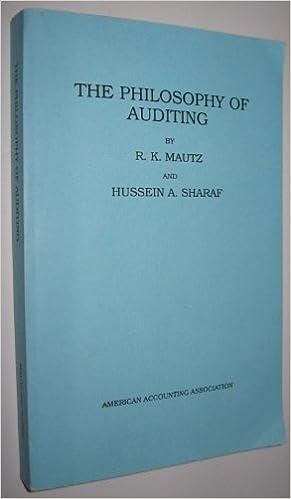Question
Chapter 2: Ancient and Medieval Economic thought and institutions Question: Explain Xenophons views on what constitutes a good manager and how the managers objective is
Chapter 2: Ancient and Medieval Economic thought and institutions
Question:
Explain Xenophons views on what constitutes a good manager and how the managers objective is accomplished.
Chapter 2: Ancient and Medieval Economic Thought and Institutions
The two millennia of Western thought spanned in chapter two introduces students to the contributions of the ancient Greeks, the Roman Empire, Chinese and Arabic scholars, and medieval Scholastics. Beginning with the ancient Greeks, Xenophon (c. 427355 BC), a student of Socrates, is introduced as a writer who focused on organization and administration with an eye to understanding individual decisions in terms of efficiency. Key concepts of a later era in economic thought can be traced to Xenophon, most notably the principle of the division of labor and the hedonistic psychology of pursuing pleasure and avoiding painan idea that preceded the formation of subjective value by later economists.
Plato (c. 427327 BC) analyzed the political and economic structure of the state. Extending Xenophons recognition of the usefulness of division of labor, Plato attributes the origin of the city to both specialization and the division of labor. The introduction of specialization, moreover, generates mutual interdependence, which in turn creates reciprocal exchange. While a theory of exchange was not established until Aristotle (c. 384322 BC), Plato focused on how goods get distributed via the marketplace. Plato did not consider the marketplace to be a self-regulating mechanism, however, and he proposed that the rulers of society live under a system of communal property so as to remove the temptation to acquire wealth by usurpation of power. Platos concern was that profit and interest led to deviations from the status quo (an ideal state), which could only be a threat to social welfare. Consequently, Plato established a class system whereby an elite group constituted the ruling class. He perhaps naively assumed that authoritarian rule would result in social harmony.
Protagoras (c. 480411 BC) was more of a relativist, believing that all opinions were subjective and that man is the measure of all things. Protagoras, unlike Plato, embraced the democratic process and believed that means were more important than ends. Protagoras maintained that the role of administration was to offer an informed choice of means to achieve given ends. Some believe that Protagoras anticipated two main cornerstones of contemporary economics: first, that utility maximization is the goal of individual activity, and second, that hedonic measurement provides a basis for informed choice.
Two-party exchange begins its analytical journey with Aristotles analysis of isolated exchange. In such a trading system, exchange is based on the subjective preferences of the individual trading parties. While his model created no market price, it is believed that Aristotle was seeking to determine the criteria for fairness. Defending private property for all classes on the grounds of efficiency, Aristotle departed from his teacher, Plato. His idea of the ideal economy was far different from Platos, especially in his emphasis on economic incentives. Although his model of exchange was primitive, Aristotle nevertheless recognized some necessary preconditions for trade. Moreover, he influenced future inquiry by approaching the subject of value in terms of incremental comparisons and by establishing the distinction between value in use and value in exchange, which reappeared in Smiths formulation of the water- diamond paradox.
Step by Step Solution
There are 3 Steps involved in it
Step: 1

Get Instant Access to Expert-Tailored Solutions
See step-by-step solutions with expert insights and AI powered tools for academic success
Step: 2

Step: 3

Ace Your Homework with AI
Get the answers you need in no time with our AI-driven, step-by-step assistance
Get Started


